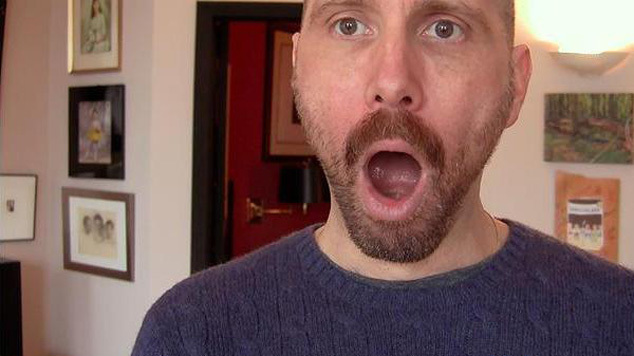Have you ever asked yourself the question: do I sound gay? Documentary filmmaker David Thorpe found himself pondering that question and it sent him off on a filmmaking journey of discovery.
Tell me, how did your journey on this documentary begin?
It began when I broke up with a boyfriend and started feeling not so great about myself as people often do when they get dumped and I started to get super self-conscious about sounding gay and I found that really disconcerting because I was out of the closet for two decades and here I was still feeling anxious about giving myself away through my voice and that realization set me on the road to make the film.
For as much as people can worry about sounding gay, I guess there are people who also worry about not sounding gay?
It is true in some cases it goes in the other direction, I have met a number of gay men who wished that they had more gay sounding voices so that they would avoid awkward situations where people think they’re straight – we delve into that in the movie as well.
What kind of things do you discover in your journey through the film in trying not to sound gay?
For me it was extremely interesting to find out that men and women speak differently and that’s not just the pitch of their voices but actually on a level, very small speech sounds and that was something I really didn’t expect and that helps me understand the gay voice, the stereotype of the gay voice, better.
What I really didn’t expect was to find so many other gay men who also were keenly aware of how gay or not gay they sounded and how big a role played in how people censored themselves because it’s something, as a community, I don’t think we talk about with any frequency and I found out that one of my best friends for the last fifteen years has always had a lot of anxiety about sounding gay.
Do you think it’s ever something we use to our advantage? Do we ever gay it up a bit?
Most of us code-switch, which is to say we subtly change our voices according to who we’re talking to or situations we are in. One of the questions the film asks is when are we code-switching? And when are we hiding and suppressing who we really are because of internalized or actual homophobia? So that’s a funny question to ask but it definitely has a more serious side.
Have you looked at how it works cross-culturally, is it just a western thing?
I did explore the question of sounding gay across cultures and there hasn’t been a lot of study on the subject. People are not throwing a lot of money at finding out. Most of the people I spoke to were in agreement that what sounds gay is what sounds feminine and that’s generally true across cultures. The specifics of that may be different but that’s the basic principle of a man who sounds gay.
Do you think it works for gay women?
The linguistic research applies equally to women as it does to men, there’s certainly a stereotype about lesbian women sounding more masculine, but I didn’t feel there was so much of a social stigma to sounding gay to most lesbians. I spoke to many women and many researchers and I didn’t find as much of a widespread stigma when it comes to voice, but there’s still plenty of stigma to go around.
When you do a film around the voice and linguistics, does it make you more conscious of how you speak?
Part of my journey has been getting comfortable with my voice and I do that in a whole bunch of different ways in the film, but the film isn’t just a film, it’s a real life growing experience for me and I’m one thousand percent more comfortable with how I sound and who I am.
‘Do I Sound Gay?’ is screening next month at the Revelation Perth International Film Festival. Head to www.revelationfilmfest.org for all the details.
Wed 8th, 6:30pm – Luna Leederville
Sat 11th, 5:15pm – Luna SX
Graeme Watson






